

The APNG Camp is a venue where future Internet leaders of the Asia Pacific region learn from and work with experts from different sectors. The camp fosters discussion, collaboration, and multidisciplinary research among participants and mentors centered on digital society and its opportunities from Asian perspectives.
Attendance check, participant tags, and novelty goods distribution.
Details coming soon.
Networking.
Meet your group in person.

“Global” GX/DX Infrastructure with Native Digital x New Energies by EP100 for Carbon Neutral
AI with Digital Twin exponentially increase energy demand, but has the power demand response (DR) capability for the peak time demand, to reduce the total cost for capacity of power grid networks. This is strategic migration from of water-fall supply chain to of bi-directional value network.
To achieve this critical goal, we need a globally connected infrastructure, which achieves carbon neutral by radically enhancing energy productivity in every single industry segment, while expanding the use of renewable energy, by the reduction of the transfer cost by the introduction of advanced technologies and methodologies(TOBE, not ASIS), e.g., replacing to digital bits transferring using optical fiber or satellite networks and integrating EV as new component for new power and computation markets.
For TO BE, we also need “RegTech”, i.e.,regulations changed by Tech.
Hiroshi Esaki, Ph.D. received the B.E. and M.E. degrees from Kyushu University, Fukuoka, Japan, in 1985 and 1987, respectively. And, he received Ph.D from The University of Tokyo, Japan, in 1998.
In 1987, he joined Research and Development Center, Toshiba Corporation. From 1990 to 1991, he has been at Applied Research Laboratory of Bellcore Inc., New Jersey (USA), as a residential researcher. From 1994 to 1996, he has been at CTR (Center for Telecommunication Research) of Columbia University in New York (USA). During his staying at Columbia University, he has proposed the CSR architecture, that is the origin of MPLS(Multi-Protocol Label Switching), to the IETF and to the ATM Forum. From 1996 to 1998, he has conducted the CSR project in Toshiba, as a chief architect.
Since 1997, he has involved in the IPv6 research and development at the WIDE project. He is a co-founder of series of IPv6 special project in the WIDE project, i.e., (1) KAME project ; IPv6 protocol stack for BSD UNIX (2) TAHI project ; IPv6 test and evaluation specification and tools (3) USAGI project ; IPv6 protocol stack for Linux
Regarding the research/development/deployment for the IPv6, he has been very tightly and closely working with Prof. Jun Murai, who has been a political and technical advisor for the Japanese cabinet for more than 20 years. He is an executive director of IPv6 promotion council, which is cross ministry and cross industry council to promote the IPv6 technology. As the activities of IPv6 promotion council, he has established the following working groups, that are aiming to explore and to deploy the IPv6 as the professional and business operation.
Since 2003, he has started the introduction of TCP/IP and Internet Framework into the facility system, which is now identified as SmartGrid, Smart Building, Smart Campus or Smart City. He successfully standardized the TCP/IP based architectural framework as IEEE1888 in IEEE, and proposing to NIST SGIP CoS (Catalogue of Standard) in US and to ISO/IEC JTC1 SC6.
He is a chair of JPNIC (Japan Network Information Center), since 2006, and has served as an IPv6 Forum Fellow and chair of IPv6 Ready Logo Program Committee. From 2006 to 2010, he served as BoT(Board of Trustee) for ISOC (Internet Society), and reelected in 2014 and in 2017. He is a director of WIDE Project since 2010, director of Japan Data Center Council since 2009, and director of Green University of Tokyo Project since 2008. He is the first Chief Architect of Digital Agency Japan.

Data-Driven Drug Discovery: Enhancing Trust While Preserving Privacy
The increasing availability of biomedical data has revolutionized drug discovery, enabling data-driven approaches to more efficiently identify the mode of action of bioactive compounds and promising new drug candidates. For example, genome-wide profiling of cellular responses to drug therapies is a promising approach for identifying the mode of action of compounds, including approved drugs. Recently, it has become possible to measure transcriptomic responses at the single-cell level, providing deeper insights into how drugs work at the cellular level. However, single-cell gene expression profiling normally generates some degree of missing data due to experimental limitations; thus, ensuring the data quality of the profiling remains a challenge. Also, the data privacy is another key concern. Pharmaceutical organizations hold vast amounts of valuable data, but sharing it remains difficult due to regulatory and competitive concerns. While collaboration can enhance predictive models and accelerate drug discovery, it must be done securely, ensuring data protection. This talk explores strategies for balancing trust and privacy in data-driven drug discovery.
Dr. Michio Iwata is an associate professor at Kyushu Institute of Technology (KYUTECH). He graduated from KYUTECH in 2009 and then obtained his Ph.D. from Kyushu University, Fukuoka, Japan, in 2014, with a focus on systems biology. With the background, he has extensive experience in computational drug discovery. He specializes in transcriptome-based drug discovery, where he has developed an innovative information technology that uses transcriptomes, which comprehensively capture the entire picture of gene expression in cells, to comprehensively predict potential target molecules and new efficacy of drug candidate compounds. In particular, he developed a novel method to predict the mechanism of action of compounds at the single cell level, paving the way for establishing effective drug therapy toward precision medicine. For this research achievement, he was honored with the Oxford Journals-JSBi Prize Award by the Japanese Society for Bioinformatics in 2023.

Building a Trusted Society - Emerging Technologies and Trust -
Everyday, we are talking about the emerging technologies like genAI, 5G/6G, web3 and so on. It would have great capabilities to provide much benefit, but does it fix the problems around trust through the internet?
This presentation introduces the backdrops of the lack of trust and discuss how we build/rebuild the internet as a trusted infrastructure for our communication.
Tatsuya Kurosaka is President and Chief Executive Officer of Kuwadate Incorporated, the company providing research and consulting expertise to leading companies including telecommunication operators and broadcasters in Japan. He is also Project Associate Professor at the Graduate School of Media and Governance, Keio University and Visiting Scholar at Georgetown University. He is contributing to the government's consideration of the issues brought by emerging technologies and related policies as a member of various government committees including OECD. He is a chairperson of the Trusted Web Promotion Council Task Force, a member of the Digital Special Advisor of Japan Fair Trade Commission, the director-general of the Originator Profile Collaborative Innovation Partnership (OP CIP), and the member of Board of Trustees of the Japan Network Information Center (JPNIC).

AI-Powered Cyber Resilience: Predict, Simulate, and Reason in Supply Chain Attacks
In cybersecurity, the most dangerous threats often originate beyond your direct control. Supply chain attacks exploit trusted dependencies, turning vendors, partners, and third-party services into attack vectors. Defending these unpredictable battlefields requires a shift from reactive security to AI-powered anticipation, simulation, and reasoning.
This talk explores how AI can identify vulnerabilities in supply chains, simulate attack paths, and provide actionable insights to mitigate risks before they materialize. By mapping external dependencies and detecting behavioral anomalies across interconnected systems, AI strengthens resilience against adversaries who target the weakest links. As supply chain attacks increasingly impact governments, enterprises, and critical infrastructure, AI-driven cybersecurity is no longer optional—it is essential.
Benson is a co-founder of CyCraft. He has lectured many times at well-known cybersecurity conferences in Taiwan and abroad, including Black Hat, DEFCON, and HITCON. He has worked at institutions such as the National Information & Communication Security Taskforce of the Executive Yuan and the Research Center for Information Technology Innovation of Academia Sinica, Co-founder of Xecure Lab, general manager for the Taiwan region of the Israeli company Verint, and technical director at the U.S. company Armorize, Benson was awarded the 2020 ICT Month Outstanding ICT Elite Award.

Copyright Challenges in Generative AI
With the rapid advancement of generative AI, such as GPT, copyright issues are becoming increasingly challenging. For example, can copyrighted data be protected in AI development? Does AI-generated content qualify for copyright protection? In this talk, we will discuss the evolving copyright dilemmas in the era of AI and introduce emerging technical approaches, such as watermarking, that offer promising solutions for mitigating these challenges.
Yujie Gu received her Ph.D. degree from the Graduate School of Systems and Information Engineering, University of Tsukuba, Japan, in 2018. From 2018 to 2020, she was a Postdoctoral Fellow with the Department of Electrical Engineering - Systems, Tel Aviv University, Israel. In 2024, she was a visiting scholar with the Department of Computer Science, Emory University, USA. She is currently an Assistant Professor with the Faculty of Information Science and Electrical Engineering, Kyushu University, Japan. Her recent research focuses on developing mathematical foundations for copyright and privacy protection in data science. She received the 2021 Kirkman Medal from the Institute of Combinatorics and its Applications and the 2022 Funai Information Technology Award for Young Researchers. She serves on the editorial boards of ACM Transactions on Probabilistic Machine Learning and the Journal of Combinatorial Designs.

Tour de Kyushu -Make Kyushu Sustainable
The Tour de Kyushu is one of the major international cycling road races, established by the Kyushu Regional Strategy Council, which comprises top economic organizations in Kyushu and the governors of each prefecture. This event was decided to be held as a symbol of the sustainable legacy of the 2019 Rugby World Cup held in Japan, the promotion of cycle tourism in Kyushu, and the recovery from recent natural disasters that have struck the region.
Following on from the previous competitions, the third competition will be held in 5 prefectures in Kyushu from October 10th to 13th, 2025.
This race is expected to provide a significant opportunity for athletes aiming for global success, promote cycling sports in Kyushu, and contribute to regional branding by showcasing Kyushu's beautiful nature and landscapes to the world.
To meet these expectations and to serve as an event contributing to the achievement of sustainable development goals in the region, the economic and administrative sectors of Kyushu will work together in cooperation to develop the event.
After 10years in financial sectors, Mr. Nakaya entered Fukuoka Prefectural Government. The initial arrangement intended for the sister city relationship between the City of Iizuka and Sunnyvale, California was one of his achievements while he represented the government office in Silicon Valley.
After he came back to Fukuoka, he engaged in several initiatives including registering the “Sacred Island of Okinoshima and Associated Sites in the Munakata Region” on the UNESCO World Heritage List in 2017, establishing Fukuoka Sports Foundation in 2021, and organizing Tour de Kyushu, a Union Cycliste Internationale (UCI) sanctioned annual professional cycling road race since 2023. He has served as Event Director of the race since the first year.
Details coming soon.
Details coming soon.

Characteristics and protocol design for enterprise blockchain
The invention of Bitcoin enabled a new form of consensus that doesn't require trusted third parties, introducing a new trust model based on mathematical protocols rather than relying on central authorities. These paradigms extend beyond cryptocurrency transactions and are expected to be utilized in enterprise fields as well, offering unprecedented opportunities for secure, transparent, and efficient business operations.
Chaintope is developing and deploying Tapyrus, a blockchain for the enterprise field. This presentation will explain the essential characteristics that enterprise blockchains should possess, including reliability, governance, and interoperability. Furthermore, we will explore the protocol design necessary to address critical requirements such as scalability, confidentiality while maintaining these core characteristics.
Since 2015, Shigeyuki Azuchi has been focusing his research on Bitcoin and cryptographic technologies, and began developing open-source libraries in related fields. At chaintope, he has been engaged in the development of enterprise blockchain solutions and protocol design.

Kotaro Kataoka received his B.A. in Environmental Information in 2002 from Keio University, and Master and Ph.D. in Media and Governance from Keio University in 2004 and 2010 respectively. He worked in a joint research collaboration among Keio University, IIT Hyderabad, and many participating institutes from Japan and India called ”DISANET” between 2010 and 2012. He served as a visiting faculty of IIT Hyderabad as well as a JICA expert to accelerate India-Japan collaboration from 2012 to 2019. Currently he is a professor at Department of Computer Science and Engineering, Indian Institute of Technology Hyderabad. His research interests include Internet Architecture and Blockchain.

Gift Economy 2.0: Fostering Global Trust through Blockchain
Traditional economic models often overlook the inherent value of generosity and social trust. Gift Economy 2.0 offers a new paradigm, leveraging blockchain to record and recognize acts of giving transparently. This approach fosters a decentralized system where gratitude becomes a form of social capital, independent of traditional financial incentives.
In this talk, we explore how the tokenomics of Gift Economy 2.0 can address challenges in valuing unpaid labor, corporate social responsibility, and decentralized collaboration. We examine how blockchain’s immutable records enhance trust in personal, professional, and corporate settings. Moreover, we discuss the role of DAOs (Decentralized Autonomous Organizations) in enabling scalable, trust-based economies without hierarchical control.
A key highlight of this session will be a live demonstration of the Gift Economy 2.0 platform, set to launch in April. This app brings the principles of decentralized generosity into practice, allowing users to record and acknowledge acts of giving in a transparent, tamper-proof manner.
By embedding social value within economic frameworks, Gift Economy 2.0 proposes an alternative to conventional profit-driven models. Join us to explore how this system can reshape trust, cooperation, and value exchange in the digital age.
Dr. Daisuke Araya(荒谷大輔) is a professor at Keio University's Faculty of Letters and holds the title of Professor Emeritus at Edogawa University, specializing in philosophy and ethics. His research focuses on modern French philosophy, particularly the psychoanalytic theories of Jacques Lacan. Araya examines the philosophical implications of Lacanian psychoanalysis, aiming to elucidate the logical structures through which our perceptions of the "world" are constructed amidst the interplay of various desires. This approach offers opportunities to reconsider the foundational structures of what we commonly accept as reality.
In his publications, such as Is There an Exit from Capitalism? and Usable Philosophy, Araya explores the frameworks of thought that unconsciously define us through historically accumulated discourses. Building upon these analyses, he developed the concept of Gift Economy 2.0, detailed in his book Gift Economy 2.0: Living in a World Where You Don't Have to Earn Money. In this work, he proposes a novel economic model that transcends traditional capitalist frameworks, emphasizing mutual assistance and community support. Araya suggests that it's possible to live without sole reliance on monetary transactions, exploring how modern technology, such as blockchain, can facilitate a system where acts of giving are transparently recorded, fostering a sustainable and trust-based economy.
At this symposium, Professor Araya will introduce the concept of the Gift Economy 2.0, exploring its potential to inform our understanding of societal frameworks.
Details coming soon.

Next-generation communication technology and Trust
NTT (Nippon Telegraph and Telephone Corporation) announced Innovative Optical and Wireless Network (IOWN) concept in 2019 as a next generation optical network and computing infrastructure.
Currently, all industries are progressing digital transformation (DX) and keep to producing immersive volume of data. Moreover, AI technologies are sweeping to expand to support DX. In this situation, high capacity and low latency are required for the network to transmit huge volume of data in high performance.
At the same time, AI models are becoming larger, and the power consumption of learning AI models is getting higher and higher. This would be a major challenge from the perspective of sustainability.
Under this circumstance, NTT unveiled the IOWN concept, which will realize high-capacity, low-latency and low energy-consumption network infrastructure.
In this presentation, I will talk about IOWN more detail.
Yukari Tsuji received B.S. and M.S. degrees in information science from Tsukuba University, Japan, in 1987 and 1989, respectively. She also received an MBA degree in Sloan Fellows Program from Massachusetts Institute of Technology in 2005. She was a researcher mainly in Service Integration Laboratories in Nippon Telegraph and Telephone corporation (NTT) from 1989 to 2012, Director of R&D Center in NTT West from 2013 to 2016, General Manager of NTT Network Technology Laboratories from 2016 to 2019, Board Director and General Manager of IOWN Innovation Business Headquarters in NTT Advanced Technology Corporation from 2019 to 2023. She has been Senior Vice President of R&D and Head of Information Network Laboratory Group in NTT since 2023.
Networking.


An experiential tour where participants experience and discuss the local nature, history, and culture, deepening their understanding of social capital.
Networking.


Akinori MAEMURA (前村 昌紀) is Chief Policy Officer of JPNIC – Japan Network Information Center, a not-for-profit Internet promotion body and National Internet Registry for Japan. Maemura has more than 25 years of career and experience in the Internet technical operations and coordination. He started the Internet career at NEC Corporation, Japan, to launch its ISP business, which is now known as BIGLOBE, as a network engineer in 1994. After that he got involved in the Internet Coordination among ISPs and associations, as the commercial Internet is emerging in Japan, including the establishment of JANOG, the Network Operators’ Group of Japan, and IP address management at JPNIC – Japan Network Information Center. Then his involvement expanded to the region when he was first elected to the Executive Council of APNIC, Asia Pacific Network Information Centre, one of five Regional Internet Registries which administer the Internet number space for respective regions in 2000. He served as an EC member for 16 years, especially as the Chair of it for 13 years until February 2016. After that, he was elected to the Board of Directors of ICANN – Internet Corporation for Assigned Names and Numbers as an appointee of its ASO, Address Supporting Organization. He served as an ICANN Board Member for two terms, six years until 2022. As the Chief Policy Officer of JPNIC, Maemura presides JPNIC’s consideration, coordination and communication of the Internet Policies as well as its external and international relations. He also serves as a Board Director at JPCERT Coordination Center, the national computer incident response team in Japan.

Rajnesh (Raj) is a technology industry thought leader and former serial entrepreneur with extensive experience in the Asia-Pacific and beyond.
He has played founding and leading roles in several technology and private equity investment firms with significant experience in business management and strategy development, spanning diverse industries such as IT and telecommunications, power infrastructure, agriculture, and real estate.
He has worked extensively with governments, academia, civil society, and the private sector and serves on several Advisory Boards. He has been part of Expert Working Groups for regional and international organisations, including UN agencies, on infrastructure, policy, regulatory reform and development issues, and has held several leadership positions in the regional and global Internet community, including Chair of the Asia-Pacific Regional Internet Governance Forum (APrIGF) and Founding Chair of ICANN’s Asia Pacific Regional At-Large Organisation (APRALO).
Raj is CEO at the APNIC Foundation where he leads efforts to increase investment in Internet and digital development, and advocates for the technologies, policies and best practices that contribute to a global, open, stable, and secure Internet that is affordable and accessible to the entire Asia Pacific community. He is also passionate about nurturing and mentoring the next generation of technologists, innovators and changemakers.

Edmon Chung is serving as the CEO for DotAsia Organisation. He also participates extensively in global and regional Internet related groups and contributes his time and expertise to Internet Governance related issues.
Since 2002, Edmon played a leadership role in the region-wide ‘.Asia’ domain extension initiative. He championed DotAsia Organisation as a not-for-profit organization and its mandate to promote Internet development and adoption in Asia. Since the launch of ‘.Asi’ web presence in 2008, DotAsia has contributed significantly to a variety of community projects in Asia, including for example: Go.Asia, ISIF.Asia, NetMission.Asia, MaD.Asia among others.
Edmon is also an inventor of patents underlying technologies for internationalized domain names (IDN) and was involved in making it possible for the introduction of multilingual domain names and email addresses on the Internet. In 2000, Edmon was selected by Canada’s most prestigious and influential news journal, The Globe and Mail, as one of its ‘Young Canadian Leaders’. In 2001, he won the ‘Most Innovative Award’ in the Chinese Canadian Entrepreneurship Award. Between 2006 and 2010, Edmon served as an elected member on the ICANN GNSO Council and after that he served as an elected member on the ICANN At-Large Advisory Committee (ALAC) from the Asia Pacific Region. Between 2006 and 2011, Edmon also served as an elected member of the Elections Committee of the Hong Kong Special Administrative Region in the Information Technology Subsector.
Edmon has a Bachelor of Applied Science and Master of Engineering from the University of Toronto.

Dr. Kenny Huang is the leading figure of the Internet communities in Asia. Since the early years of Taiwan’s Internet development, he contributed a great deal to build up a better Internet environment in Taiwan. Because of his tremendous knowledge and experience, he has been invited to take up leading roles in many Internet technology and policy organizations, including APNIC Executive Council member, APNIC Policy SIG Chair, NRO Number Council member, PIR Board member (.org), TWNIC Board member, TWNIC International Affair Committee Chair, Advisor of .taipei Registry, dot Asia Advisory Council, ICANN New gTLD Review Committee, APAN TW founder, ISOC Taipei founder, TWIA advisor.
Dr. Huang’s contributions have been acknowledged especially in the development of Internet technology. Dr. Kenny Huang is the co-author of IETF RFC3743; co-chair of CGP (LGR for the Root zone); Co-Chair of JET; Advisor of CDNC. Dr. Huang is working closely with government agencies in developing technology policies. He is Taiwan e-Government Committee member, Taiwan Government & IT Transform Committee member, MOTC (Ministry of Transportation and Communications) project leader and advisor on IPv6 policy and broadband policy. He is also the .taipei registry advisor for the Taipei Government.

Athena is a Stakeholder Engagement Manager at ICANN, covering ICANN’s relations with stakeholders in Southeast Asia and Japan. Based in Singapore, she works with key stakeholders such as governments, registries and registrars, and members of the technical community, to explore ways in which ICANN can contribute to the improvement of local and regional Internet infrastructure. Prior to joining ICANN, Athena worked for the Singapore Government, covering customs regulations, economic and cyber diplomacy over a span of 7 years. Athena holds a Master’s degree in Public Policy from the Lee Kuan Yew School of Public Policy, and a Bachelor of Arts in Theatre Studies from the National University of Singapore. She speaks English, Mandarin, and conversational Russian.

Professor Dr. Sam Goundar is an International Academic having taught at twelve different universities in ten different countries. He is currently a Senior Lecturer in Information Technology at RMIT University in Vietnam, Adjunct Professor of Computer Science at The University of Fiji and Visiting Professor of Data Science at SRM University, Chennai India. He is a former Affiliate Professor of Information Technology at Pontificia Universidad Catolica Del Peru (Peru) and Research Fellow of United Nations University. He was invited as a Visiting Professor and Researcher at Hassan 1st University, Morocco (June-July 2019) and Bahir Dar University, Ethiopia (June-July 2018). He regularly gets invited as a Keynote Speaker to international conference, to Chair the conferences, and to facilitate Faculty Development Programs at universities. He has 125 publications in journals and as chapters in books (many of them indexed by Scopus and Web of Science). He has written and edited eighteen books that has been published and a few more book projects are in progress. He also reviews book proposals for publication decisions for many reputable publishers and is the Book Series Editor for others. He currently supervises 3 PhD students and a number of PhD and Master students have successfully completed their thesis under his supervision. He is also on the PhD examination panel for many international universities and regularly reviews and examines PhD thesis. He has been successful in getting internal and external grant funding and currently works on and supervises research projects on Artificial Intelligence, Blockchain, Cyber Security and Educational Technologies.


Kathy Lee earned a Ph.D. in educational linguistics from the University of Pennsylvania. Currently, she is an associate professor at Korea University in the Department of English Language and Literature. She teaches classes on academic writing for preservice English teachers and an intercultural communication course with Tamkang University in Taiwan and Waseda University in Japan. Her research interests include English language education policy, discourse analysis, and language ideologies. Her work has been published in Current Issues in Language Planning, RELC Journal, Discourse & Society, Text & Talk, and The Asia-Pacific Education Researcher.
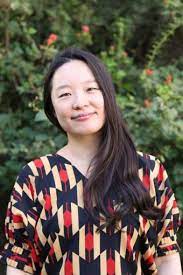
Sunyoung Yang is an Associate Professor in the Department of East Asian Studies. She earned her Ph.D. in Anthropology from the University of Toronto and her B.A. and M.A. in Sociology from Yonsei University. As a cultural anthropologist, she has studied Internet development since 1999, focusing on South Korea and the Asia Pacific region. She is a founding member of the Haja Center (Seoul Youth Factory for Alternative Culture) and has been actively involved with Asia Pacific Next Generation (APNG), organizing several camps and serving in leadership roles since 2002. She has also participated in the Internet Governance Forum as a member of the Internet Society. Her research and teaching explore the societal impacts of new media and digital technologies, with an emphasis on youth, labor, and gender issues.
Details coming soon.
Elevator Pitch by each group.
Poster Presentation by each group.
Details coming soon.
Networking.
The APNG Camp offers a limited number of Fellowships to individuals from Developing, Least Developed Country (LDC), or Small Island Development State (SIDS) economies in the Asia Pacific region, as listed on the United Nations Website. These fellowships provide the opportunity to attend and participate in the APNG Camp, which will be held in in-person. The APNG Fellowship program places particular emphasis on achieving gender and geographical diversity.
The objectives of the fellowship program are:
The basic requirements for the eligibility of the fellowship program are:
The fellows can receive basic benefits with/without additional benefits based on application evaluation.
Fellows must have a valid passport and visa to enter the on-site host country. Selected fellows traveling to the host country shall apply for a visa (if necessary) at their own expense. We will be happy to assist in case you need any supporting documents for the application.
A dedicated selection committee meticulously reviews all applications and selects candidates deemed best suited for the on-site fellowship. The committee aims to provide opportunities to individuals from a diverse range of organizations and geographical locations within the Asia Pacific region. The decisions of the selection committee are final, and the chosen applicants are notified individually. The list of selected Fellows is also published on the APNG Camp website.
| Application for New Applicants | |
| Opening Date: | Thursday, 01 August 2024 |
| Closing Date: | Monday, 30 September 2024 at 23:55 UTC +9 |
| Application for Returning Fellows | |
| Opening Date: | Thursday, 01 August 2024 |
| Closing Date: | Friday, 30 August 2024 at 23:55 UTC +9 |
Any other questions or concerns should be addressed to the Selection Committee by email to fellowships[at]apngcamp[dot]asia
We welcome sponsorship from all interested organizations, associations, groups and services. Sponsoring the APNG activities will provide an outstanding networking opportunity to profile and promote your business, products and services to key Internet stakeholders and users within the Asia Pacific region.
Here are some FAQs. If you have any other queries please contact us.
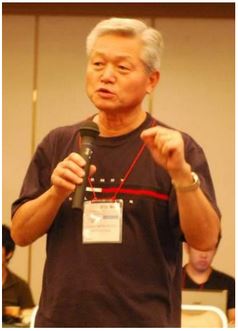
Tommy Matsumoto
Advisor, APNG, APNG Camp
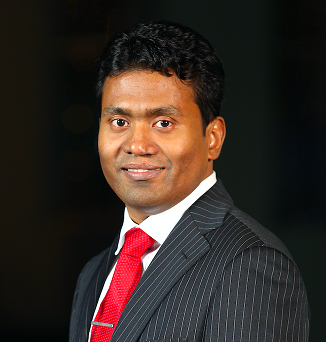
Khan Md. Mahfuzus Salam
Chair, APNG Camp
Co-Chair, APNG

Yuka Kataoka
Co-Chair, APNG Camp
EC Member, APNG

Hideki Shoda
Local Committee Chair, APNG Camp
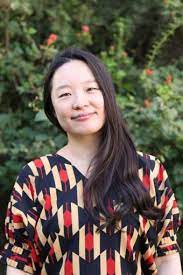
Sunyoung Yang
Member, APNG Camp
Chair, APNG
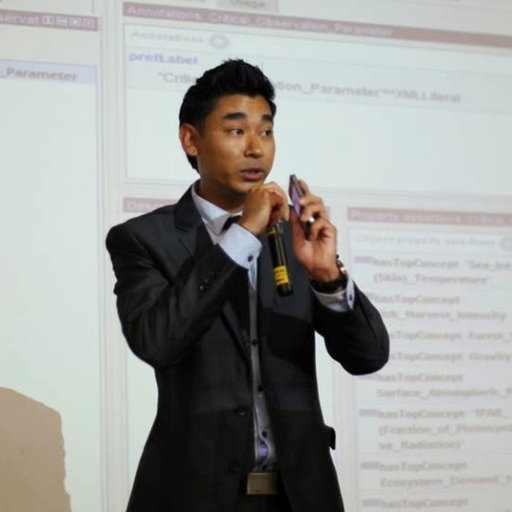
Ashik Rajbhandari
Member, APNG Camp
Technical Chair, APNG
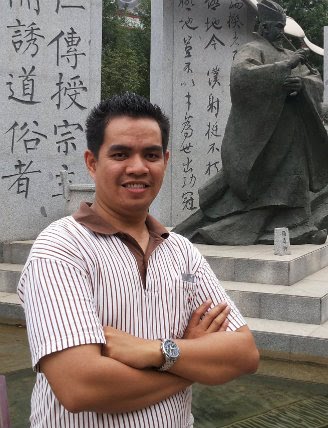
Emil R. Kaburuan
Member, APNG Camp
EC Member, APNG

Kotaro Kataoka
Member, APNG Camp

Phyo Thiri Lwin
Member, APNG Camp

Satoshi Yoshida
Member, APNG Camp

Shodai Asaoka
Member, APNG Camp
Code of Conduct | Privacy | Contact Us
Copyright © APNG. All Rights Reserved.